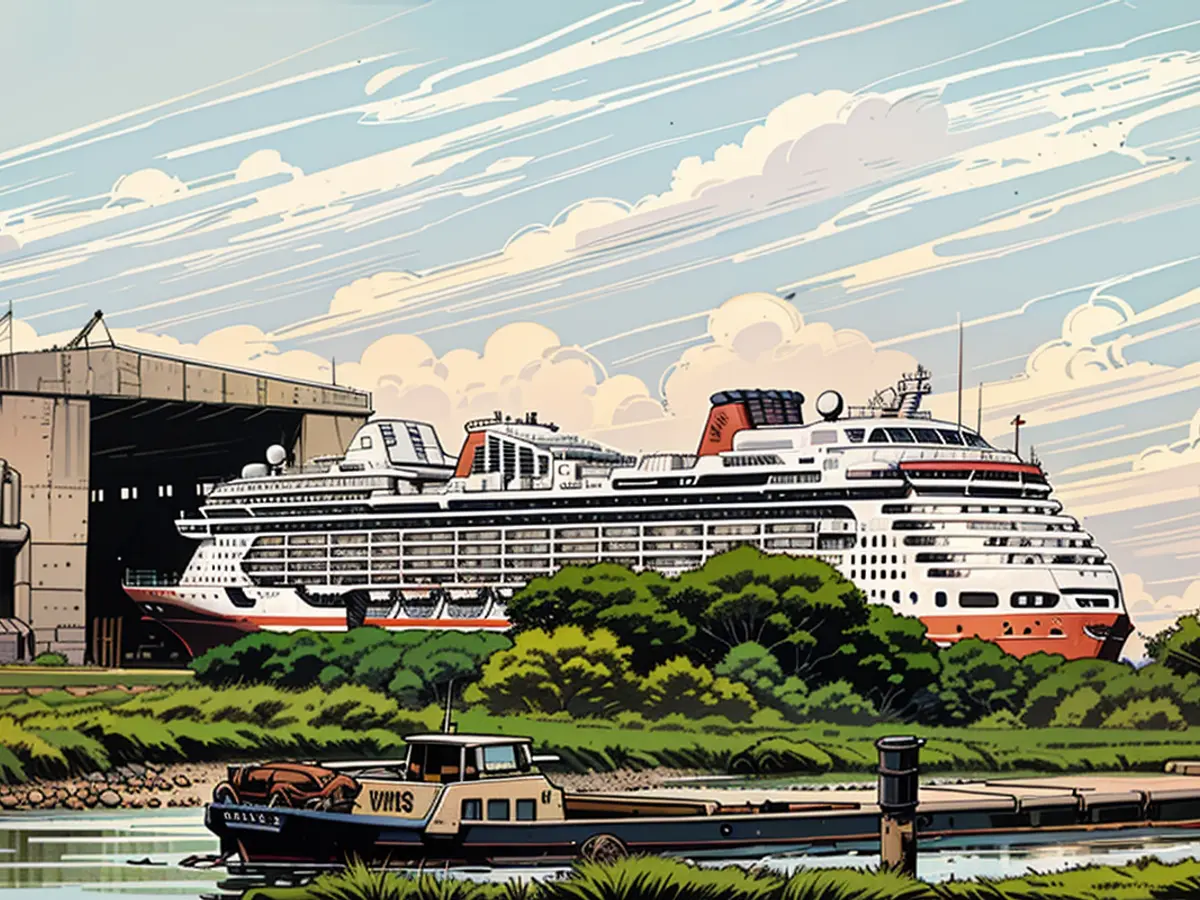- The authorities are planning to seize control of approximately 80% of Meyer Werft.
The Federal Administration and Lower Saxony's government aim to purchase approximately 80% of the troubled Meyer Werft for 400 million euros. This was announced by Lower Saxony's Minister of Economics, Olaf Lies, in the Hannover state parliament.
In conjunction with the federal government, the state also plans to offer guarantees to prevent the company's bankruptcy. According to the Ministry of Economics, this would involve approximately 1 billion euros each for the federal government and the state. Last week, German Chancellor Olaf Scholz (SPD) and the state government announced their intention to save the shipyard, which is experiencing financial hardship. Lies has now provided the specifics.
Over 20,000 jobs in Germany are at risk
The Minister of Economics justified the proposed rescue by stating that the shipyard's crisis directly and indirectly threatens more than 20,000 jobs in Germany, with about half of them in Lower Saxony. "The state can't just watch," said the SPD politician. Furthermore, Germany's maritime industry must be preserved.
Lies stressed that the state does not aim to be the majority shareholder of the shipyard in the long term. "We can easily imagine a successful future for the shipyard in private hands," he said. This also includes an option for the Meyer family to buy back the shares.
Meyer Werft must secure funding by mid-September
The Meyer Werft, known for its cruise ships, needs to raise nearly 2.8 billion euros by the end of 2027 to fund the construction of new ships. Agreements on this must be reached by September 15.
It was reported that this predicament is not due to a lack of orders. However, some contracts for the ships were signed before the Corona pandemic and do not allow for adjustments to the increased energy and raw material prices. Furthermore, in the industry, 80% of the construction price is usually not paid until the ship is delivered - the shipyard must therefore finance the construction with loans in the interim.
Federal Chancellor Scholz had praised the company last week at the Papenburg shipyard as an "industrial gem". "The Meyer Werft is a valuable asset that we cannot afford to lose and will not lose," said Scholz.
The rescue is not yet finalized. Among other things, the budget committees of the Bundestag and the state parliament still need to approve the project.
All factions in the state parliament agree that the shipyard should be saved. However, the opposition leader, Sebastian Lechner of the CDU, emphasized that the state's involvement should only be temporary. "It must be clear that the shipyard shouldn't become a state authority, because the state doesn't know how to build ships," said Lechner. The AfD cautioned against the possibility of Chinese involvement in the shipyard if the state sells its shares again.
Economist questions the shipyard's competitiveness
Criticism of the planned rescue came from the economist Marcel Fratzscher. "There's actually no good reason why this company is now essential for Germany. It isn't," said the president of the German Institute for Economic Research (DIW) to NDR. The state cannot begin saving all companies that face difficulties. "We must acknowledge that we cannot produce all products in Germany."
The economist also expressed doubts about the competitiveness of the Meyer Werft. "What's really concerning is that a company is in trouble, but no private investor wants to participate, despite these generous state guarantees," he said. "That should be a warning sign to everyone that this company isn't sustainably positioned."
The Commission, comprising federal and state budget committees, needs to approve the proposed rescue of Meyer Werft by the Federal Administration and Lower Saxony's government. The Minister of Economics, Lies, acknowledges that the state does not intend to be the long-term majority shareholder of the shipyard, but rather envisions a successful future for Meyer Werft in private hands.








